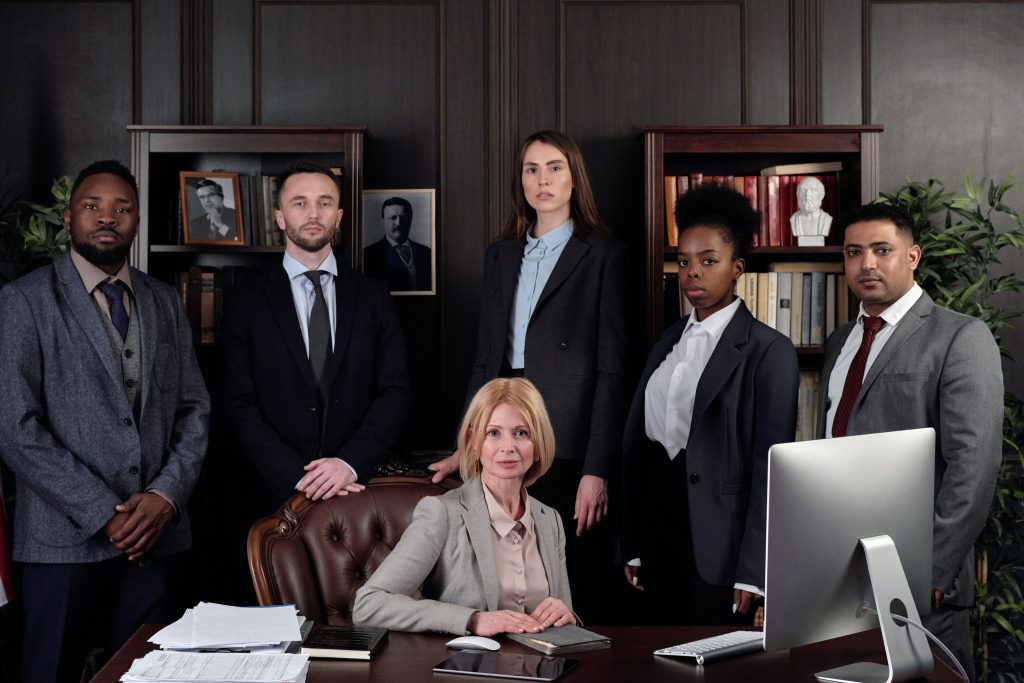Legal Teams in Businesses and Corporations
In today’s complex and rapidly changing business landscape, the role of legal teams within corporations has become increasingly vital. Modern corporations require legal professionals who possess a unique set of qualities to navigate legal challenges, mitigate risks, and drive business growth. Beyond traditional legal expertise, these teams must possess a range of skills and characteristics that align with the dynamic nature of modern business operations. So, here are some of the most essential qualities that modern corporations need in their legal teams.
Effective communication skills
Effective communication skills are a critical quality for legal professionals working in modern corporations. They must be able to convey complex legal concepts and advice in a clear and concise manner to various stakeholders, including executives, employees, and external parties.
Strong communication skills foster collaboration, facilitate understanding, and enable legal teams to effectively advocate for the organization’s interests. Whether drafting contracts, negotiating agreements, or delivering presentations, legal professionals must be proficient communicators to ensure clarity and mitigate misunderstandings. Additionally, effective communication skills are necessary to build relationships and establish rapport with clients, colleagues, and external partners.
Strong legal knowledge and expertise
First and foremost, modern corporations need legal teams with a strong foundation of legal knowledge and expertise. This includes a deep understanding of corporate law, contracts, intellectual property, employment law, compliance, and other relevant legal areas. Legal professionals must stay up to date with changing laws and regulations, ensuring they possess comprehensive knowledge to provide accurate and timely advice to the organization.
A solid legal foundation forms the backbone of a corporate legal team, enabling them to navigate complex legal landscapes, anticipate risks, and provide effective guidance to the organization in a rapidly changing legal environment. This is why you might consult professionals in your area to help you do these things, and if you live in Australia, for instance, you can find a versatile lawyer from Essendon who knows all about different legal matters and can help you with tons of knowledge and expertise.
Business acumen and commercial awareness
In addition to legal knowledge, modern corporations require their legal teams to possess business acumen and commercial awareness. Legal professionals must understand the organization’s strategic objectives, market dynamics, and industry trends. This understanding allows them to align legal advice with the company’s goals and help drive business growth while managing legal risks.
By integrating legal perspectives into business decision-making processes, legal teams can contribute to the overall success and profitability of the organization. This requires legal professionals to develop a holistic view of the business landscape, staying updated on industry trends, competitive dynamics, and economic factors that impact the organization.
Analytical and problem-solving abilities
Modern corporations need legal teams with strong analytical and problem-solving abilities. Legal professionals must be skilled at analyzing complex legal issues, identifying risks, and developing strategic solutions. They must possess the ability to think critically, consider multiple perspectives, and find creative solutions to legal challenges.
By combining legal expertise with analytical thinking, legal teams can navigate intricate legal frameworks, anticipate potential obstacles, and effectively address complex issues that arise within the organization. Analytical and problem-solving abilities are crucial in assessing legal risks, developing risk mitigation strategies, and ensuring the organization’s legal compliance.
Adaptability and flexibility
The ability to adapt and be flexible is crucial for legal teams in modern corporations. As business landscapes evolve and regulations change, legal professionals must quickly adjust their approaches and strategies. They need to stay nimble, embrace new technologies, and be open to innovative ways of delivering legal services.
By being adaptable and flexible, legal teams can effectively respond to emerging legal issues, regulatory changes, and market trends. This quality allows legal professionals to provide proactive and relevant advice to the organization, ensuring compliance and mitigating legal risks in a dynamic business environment.
Ethical and professional conduct
Ethical and professional conduct is a fundamental quality that modern corporations seek in their legal teams. Legal professionals must uphold high ethical standards, maintain confidentiality, and act with integrity. They play a key role in safeguarding the corporation’s reputation and ensuring compliance with legal and ethical standards.
Legal teams are entrusted with sensitive information and are expected to handle it with the utmost confidentiality and professionalism. By adhering to ethical standards, legal professionals establish a foundation of trust and integrity, which is essential in building strong relationships and representing the organization’s best interests.
Modern corporations depend on legal teams that possess a diverse set of qualities to navigate the complex legal landscape, mitigate risks, and drive business growth. By cultivating these qualities within their legal teams, modern corporations can effectively address legal challenges, maintain compliance, and propel their organizations forward in the dynamic business environment. Legal teams are not only guardians of legal compliance but also strategic partners who contribute to the overall success and growth of the organization.

